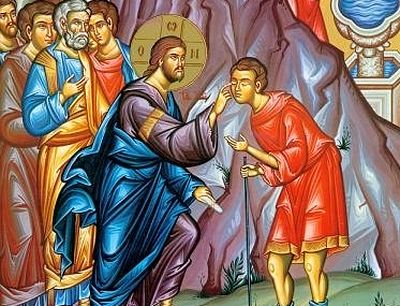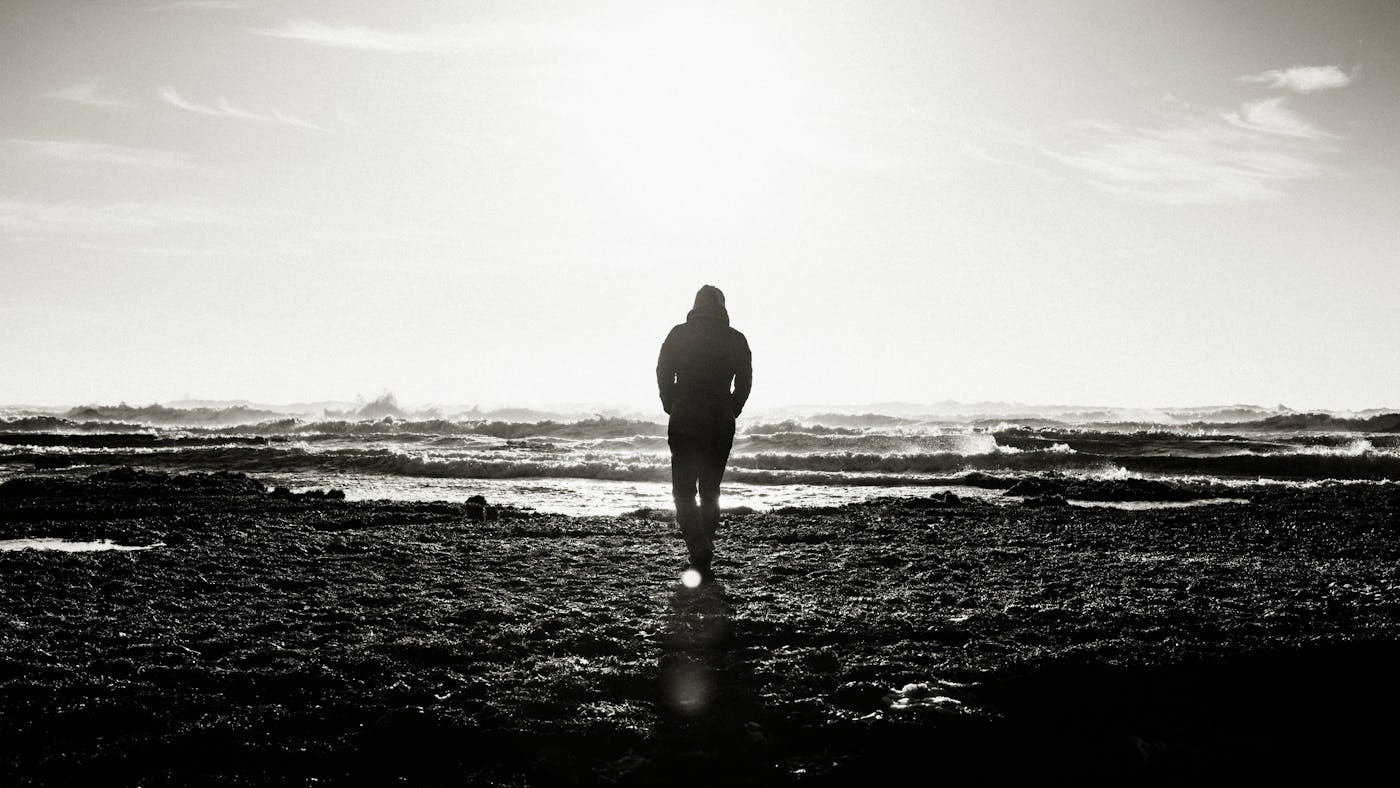HOMILY: Pentecost – Trinity Sunday – June 7th, 2020
Readings: Epistle – 1 Corinthians 12:4-13, Gospel – John 14:23-31.
Christ is in our midst! (He is, and ever shall be!)
Glory to Jesus Christ! (Glory forever!)
In the name of the father, and of the Son, and of the Holy Spirit, One God! Amen.
Today is an important day in the life of the Church, and it is a joyous day, for it is the day that the Pillar and foundation of Truth was erected upon the foundation of the prophets and the apostles, with Christ as the cornerstone; it is the day that the faithful were found and formed into living stones of this divine-human institution of the One, Holy, Catholic, and Apostolic Church. Today is the day the Holy Orthodox Church was founded and formed. It is Trinity Sunday, the day of Pentecost. The Church, for her birthday, received from on high the gifts of the Holy Spirit, by which she (the Church) was illumined; by which the Church became the abode of the Holy Spirit, and the vehicle of Holy Revelation. It is in the Church that we are illumined and receive the gifts of the Holy Spirit; it is in the Church that Christ is revealed to us, where we encounter Him in body and Spirit; and it is through Christ that the Father is revealed to us also. The Church is the body of Christ, and it is within and a part of that body that we worship the triune God: Father, Son, and Holy Spirit, now and ever, and unto ages of ages.
We recently celebrated the Holy feast day of Christ’s Ascension, whereupon today we remember his words promising us that he “will ask the Father, and he will give [us] another Helper, to be with [us] forever.” This is, of course, the Holy Spirit of whom he speaks. Christ ascended that the Holy Spirit might descend and endow us with those gifts necessary to the building up of the Church in the fullness of Christ. We all possess those gifts of God’s grace common to all, as Saint John Chrysostom highlights in his own homilies on the letter to the Ephesians: “baptism, salvation by faith, having God as Father and partaking of the same Spirit.” We also possess diverse spiritual gifts in varying degrees; though, one must not allow one’s self to descend into arrogance at what they themselves possess, nor must one look at another’s gifts and fall into despondency that they have not been so gifted. It is against this which Saint Paul fought in his letters written to both the Ephesians and the Corinthians, and why he used the analogy of the Church as one body consisting of many members elsewhere in scripture. This is also why Saint John Chrysostom also says “If someone has more in grace, feel no resentment, for his task is greater too.” For, if those who have been given do nothing with what they have received, they are just like the man who received the one talent, and buried it in the earth. No, we must use the gifts we have received as tools for the building of the Church; for a gift unused is one taken for granted, and has no value to us, to the Church, and the world in which we live. So, what can be said about these gifts? Saint Paul tells us that “there are varieties of gifts, but the same Spirit; and there are varieties of service, but the same Lord; and there are varieties of activities, but it is the same God who empowers them all in everyone. To each is given the manifestation of the Spirit for the common good.” It is within this common good that we incarnate Truth to the world; bring light into the darkness; bring faith to the faithless; bring hope to the lost; bring medicine to the sick; and bring peace amidst the chaos of this world.
The Church is one in her essence; her essence of faith; her essence of spirit and the teaching received therein; but, she is diverse in both gifts and function. Despite what the world may try to force us to believe, unity does not mean uniformity; and, equality does not mean sameness. The Church is diversity in operation; not a diversity of faith nor truth, but of people. We are all living stones, just as Saint Peter exhorts, altogether comprising the Church. Look at the walls of any Church, the grains of the wood, the variations in the stone, the adornments they bear, the scars they hold, and no two are alike. Likewise, we are each unique in person, yet we all strive towards the same fullness of our humanity. It is towards this fullness of our humanity in Christ that we are “guided by gifted people for the sake of maturity and stability of the body,” those Bishops in whom the unity and continuity of the Church is ensured; for, as Saint Ignatius has said, where the Bishop is, there also is the Church. It is the fullness of Christ towards which we all strive together, as a flock guided by her shepherd, through our cooperation with the Holy Spirit of which the Church has received, and our humility through obedience to the commands of Christ; for, as Christ himself exhorted in our Gospel reading for today, “If anyone loves me, he will keep my word, and my Father will love him, and we will come to him and make our home with him.”
To Saint Paul, it is the Holy Spirit which both unites and strengthens the Church. The goal of our salvation is that of theosis, or deification, our continual striving towards the likeness of God where the image of God will be perfected in all mankind. So, it is by the Holy Spirit in which we are granted the myriad gifts of the Spirit, working towards that end. These gifts are given to the benefit of the Church, the Body of Christ. In addition to this, it is within the Church that we come into communion with Christ, cultivating the gifts thus given to us, elevating us even further on our journey into holiness.
Paul saw the actions and activities of the Holy Spirit as different from both the Father and the Son, but were complementary to the Love of the Father, and the Grace of Jesus Christ our Lord. Saint Paul affirmed that it was by Christ all things were made: “For by him all things were created, in heaven and on earth, visible and invisible, whether thrones or dominions or rulers or authorities—all things were created through him and for him;” and it is thus by the Holy Spirit all things are perfected. It is by the Holy Spirit that Christ is revealed to us and to all men, and it is through Christ that the Father is revealed, for “He is the image of the invisible God.”
Both Saint Paul and Saint John the Evangelist well establish the divinity of the Father and the Son, and tie the two of them together with the work of the Holy Spirit. While the Father is the source of all things, and it is by the Son through which all things are created, the Holy Spirit “is the very Content of the Kingdom of God” While the Spirit functions as a luminary of Holy mysteries, the Spirit remains mysteriously hidden from all things, functioning in us to reveal the Son to us. It is by Love that the three persons of the Trinity are connected and commune with one another, and it is within this Love that is found the salvation for all mankind; for, God is Love. As the Trinity exists as persons in Communion, so then must we, the Body of Christ, exist as persons in communion, so bringing us closer to the uniting and enduring love of the Father.
We have been given these gifts by the Holy Spirit, given the Holy Spirit Himself, that the Church may be duly armed with the proper tools for the struggles ahead. We have been given the tools necessary for the labors of the fields from which God’s harvest will come. We must not and cannot neglect these tools for while iron may sharpen iron, tools soon rust when left in disuse. For, we cannot neglect or ignore the labors at hand, because as Christ himself has said, the harvest is plentiful, but the laborers are few. Though these gifts were received by us freely, at no cost to us, they were bought with an immeasurable price: Christ on the cross. So, let us live our lives worthily of such a sacrifice, that we be counted as sons and daughters of the Living God. Let us work together with faith, and in the fullness of Truth, that all truth may abide in us and save us.
By the prayers of our holy Fathers and Mothers, Lord Jesus Christ our God, have mercy on us.
Amen.










